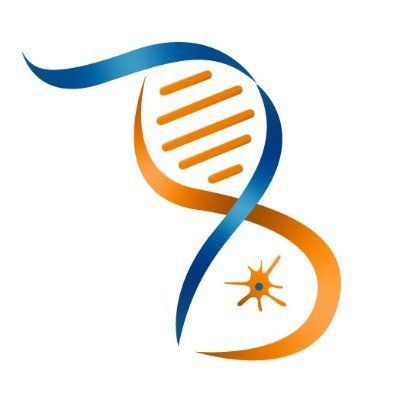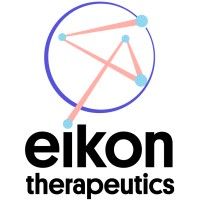预约演示
更新于:2025-05-07

Seven & Eight Biopharmaceuticals, Inc.
更新于:2025-05-07
概览
标签
肿瘤
免疫刺激抗体偶联药物(ISAC)
小分子化药
疾病领域得分
一眼洞穿机构专注的疾病领域
暂无数据
技术平台
公司药物应用最多的技术
暂无数据
靶点
公司最常开发的靶点
暂无数据
| 疾病领域 | 数量 |
|---|---|
| 肿瘤 | 3 |
| 排名前五的药物类型 | 数量 |
|---|---|
| 免疫刺激抗体偶联药物(ISAC) | 2 |
| 小分子化药 | 1 |
| 排名前五的靶点 | 数量 |
|---|---|
| TLR7 x TLR8 | 2 |
| PDL1 x TLR7 x TLR8 | 1 |
关联
5
项与 Seven & Eight Biopharmaceuticals, Inc. 相关的药物作用机制 TLR7激动剂 [+1] |
在研适应症 |
非在研适应症- |
最高研发阶段临床1期 |
首次获批国家/地区- |
首次获批日期- |
作用机制 PDL1抑制剂 [+2] |
在研适应症 |
非在研适应症- |
最高研发阶段临床前 |
首次获批国家/地区- |
首次获批日期- |
作用机制 TLR7激动剂 [+1] |
在研适应症 |
非在研适应症- |
最高研发阶段临床前 |
首次获批国家/地区- |
首次获批日期- |
100 项与 Seven & Eight Biopharmaceuticals, Inc. 相关的临床结果
登录后查看更多信息
0 项与 Seven & Eight Biopharmaceuticals, Inc. 相关的专利(医药)
登录后查看更多信息
2
项与 Seven & Eight Biopharmaceuticals, Inc. 相关的文献(医药)2021-11-01·European Journal of Cancer1区 · 医学
Current strategies for intratumoural immunotherapy – Beyond immune checkpoint inhibition
1区 · 医学
Review
作者: Luke, Jason J ; Hu-Lieskovan, Siwen ; Brody, Joshua ; Diab, Adi ; Cao, Z Alexander ; Andtbacka, Robert H I ; Marabelle, Aurelien ; Khilnani, Anuradha ; Yuan, Jianda ; Snyder, Alexandra ; Hodi, F Stephen
2021-05-20·Journal of Clinical Oncology
BDB001, an intravenously administered toll-like receptor 7 and 8 (TLR7/8) agonist, in combination with pembrolizumab in advanced solid tumors: Phase 1 safety and efficacy results.
作者: Andtbacka, Robert H.I. ; Rasco, Drew W. ; Alistar, Angela Tatiana ; Tolcher, Anthony W. ; Chung, Alexander H. ; Patel, Manish R. ; Johnson, Melissa Lynne ; Li, Lixin
8
项与 Seven & Eight Biopharmaceuticals, Inc. 相关的新闻(医药)2025-03-13
·同写意
中国的新药公司当下最看重的是BD和融资,而决定BD和融资的关键就是临床数据。因此,一个首席医学官(CMO)的实力对公司的商业化能力十分重要。
同写意曾两次盘点中国新药公司的CMO。之所以如此,是因为中国新药越来越多的进入了临床阶段,而且创新程度越来越高,不断向FIC和BIC发展,这就使得临床试验的复杂性越来越高,因此作为一个新药公司的CMO,其专业性也就显得尤其重要。特别是,这是这个公司的CEO对临床试验驾驭能力不够的情况下更是如此。
从本次盘点的近200位CMO信息来看,CMO是一个流动性较大的岗位,多数是在Biotech公司之间流动,黑永疆、何如意博士则在Biotech和传统药企之间切换岗位。少数的CMO成长为公司的CMO或自己创业发展,比如邹建军和回爱民博士,我们列出了11位。
需要说明的是,本次盘点的近200位现任CMO的信息我们没有做一一核对,一定会有人已经离开了表中所列的岗位,就请大家留言板留言更正吧。
本文整理自网络信息,未经企业核实,实际内容请以官方为准。
189位
首席医学官
按姓氏首字母排序
01
Adrian M. Di Bisceglie
君圣泰CMO
2019年7月出任君圣泰CMO。曾任美国肝病研究协会的前任主席和理事会成员、AASLD杂志《肝病学》的编辑委员会成员,并担任圣路易斯大学胃肠道和肝病分部的内科教授和肝病科主任,并于2006-2017年担任圣路易斯大学内科系主任。
02
昂秋青
曙方医药CMO
昂秋青博士拥有超过18年的临床开发丰富经验,曾在赛神医药、科伦药业、礼来、辉瑞、GSK担任首席医学官、全球临床科学负责人、医学总监和临床研究医生等职位。
03
Bijoyesh Mookerjee
先声药业CMO(肿瘤领域)
加入先声之前在诺华担任肿瘤医学副总裁兼高级全球项目临床负责人。在此之前,曾在葛兰素史克、因塞特医疗、阿斯利康、托马斯杰斐逊大学西德尼·金梅尔癌症中心、马里兰大学格霖邦癌症中心和约翰斯霍普金斯肿瘤中心等国际领先医药企业与医疗科研机构担任管理及科学岗位。
04
蔡建明
兆科眼科CMO
2021年6月,蔡建明加入兆科眼科,出任公司CMO。曾任PPD亚太区副总裁及医学总监、MDCO的亚太区副总裁;也曾任职于多间全球领先的药业公司,包括Bayer Schering Pharma AG、默沙东、Amgen及GE Healthcare等担任高级医学职位。
05
蔡胜利
维立志博CMO
加入维立志博前,蔡博士曾任恒瑞(美国)副总裁,负责全球肿瘤项目的临床开发。之前,先后在德国拜耳全球肿瘤临床开发部、日本第一三共公司、瑞士诺华肿瘤和美国Intrexon Corporation担任临床研发项目负责人。
06
蔡东坡
尚德药缘CMO
2012年至2015年担任哈佛大学医学院华人专家学者联合会副主席,负责转化和精准医学活动。拥有多年中国临床经验并了解中国临床体系。拥有接近完整的跨越基础研究,转化医学和临床一期,二期的抗癌药物研发经历。
07
陈兆荣
多玛生物CMO
曾在祐和,琅铧医药,喜康生物医药,Sanofi,Bayer,GSK等多家国内外知名企业就职,做过医学研究,各期药物研发,药物审评,药物注册,和药物安全等工作。
08
陈长汀
合源生物CMO
2021年7月,陈长汀博士加入合源生物。2005-2018年,担任FDA生物制品评估和研究中心(CBER)组织和先进治疗办公室(OTAT)医学官/团队负责人。
09
陈杰
驯鹿生物CMO
从事肿瘤临床医生工作14年。加入驯鹿生物前,曾任北恒生物CMO、武田中国副总裁兼医学事务主管,此前,还曾在BMS中国担任高级医学事务总监、辉瑞中国担任医学事务总监、三维生物担任高级科学家。
10
陈霞
泰格医药CMO
现任泰格医药CMO、高级副总裁。之前曾先后担任北京协和医院临床药理学研究中心副教授,北京天坛医院临床药理学教授,国家药品评审中心(CDE)临床评审员等职务。
11
陈剑锋
宇耀生物CMO
曾服务罗氏、葛兰素史克、诺和诺德以及江苏豪森、和记黄埔、科望等国内知名药企,任职涵盖医学总监、临床运营负责人和临床开发负责人,在临床医学和运营团队的组建和管理、临床开发策略制定与实施等方面拥有丰富经验。
12
陈泓恺
安立玺荣创始人兼CMO
回国前,陈博士任职于美国加州大学旧金山分校格拉斯通研究所担任助理教授。之后曾服务于葛兰素史克等多家生物医药研发机构,带领从早期研发到临床试验多项神经疾病领域新药的项目研发。
13
陈炳官
新为医药CMO
1990-1996年在日本川崎医科大学附属病院、姬路坂本病院等从事外科临床;1996-2008年在美国密歇根大学医学院、耶鲁大学医学院;2008年回国至今分别在上海东方医院、合肥京东方医院等单位。同时兼任同济大学医学院外科教授,兼任东方医院中心实验室主任5年。
14
迟海东
礼来中国CMO
2010年,加入礼来公司任礼来中国副总裁兼CMO。曾就职于葛兰素史克中国及中国研发中心,历任医学顾问,临床研究医师,资深临床研究医师等职。
15
Caroline Germa
创胜集团全球药物开发执行副总裁及CMO
曾就职于阿斯利康、百时美施贵宝、诺华、辉瑞、法国礼来及赛诺菲-安万特。法国巴黎及里尔大学医学博士学位和医学肿瘤学家学位,以及乳腺疾病和免疫学硕士学位。
16
Daniel Canafax
凯瑞康宁CMO
2018年担任凯瑞康宁CMO,领导着从概念、临床前研究、临床研究到市场批准以及上市后研究的临床药物开发。此前,他曾在Omeros、Theravance、ARYx Therapeutics、XenoPort等担任要职。
17
Dr Richard Jones
和美药业CMO
曾在Roche、Johnson&Johnson、InventivHealth等多家国际医药公司及CRO公司担任关键岗位。原百明信康(WORG Pharmaceuticals)创始成员&CMO。
18
邓承军
华汇拓医药CMO
2020年12月起任上海华汇拓医药副总经理兼CMO。之前,曾担任福建金乐医药学术总裁(2012年9月-2017年7月)和北京夸克侠医学副总经理(2017年8月-2020年12月)。
19
David Margolis
腾盛博药CMO
加入腾盛博药前,Margolis博士曾担任GSK和ViiV Healthcare的医学总监和高级医学总监,并作为首席医师负责长效整合酶抑制剂cabotegravir临床开发计划。
20
杜云龙
普祺医药CEO/CMO
现任普祺医药CEO兼CMO、合伙创始人,从事药物研发、临床开发和产品上市全过程及管理逾25年,具有辉瑞、GSK等著名跨国制药公司20余年工作经历。
21
Erin Quirk
拓臻生物总裁兼CMO
2019年加入拓臻生物任CMO,Erin Quirk曾任吉利德临床研究副总裁、默克研究实验室临床研究总监。
22
Frederick Herman Hausheer
乐普生物Global CMO
2020年10月任乐普生物Global CMO。曾任曾担任药明康德全球CMO兼高级副总裁;及曾担任BioNumerik Pharmaceuticals创办人、董事长兼总经理23年。
23
Gerry Cox
北海康成首席战略官兼代理CMO
2019年4月GERALD COXD出任北海康成CSO和代理CMO。在创建自己的咨询公司前,曾担任过Editas Medicine的CMO,还曾在赛诺菲担任罕见病临床开发副总裁等岗位。
24
甘黎明
瑞博生物CMO、全球研发总裁、联席CEO
加入瑞博生物前曾任担任阿斯利康心血管、肾脏以及代谢类疾病的全球临床开发负责人,自2009至今兼任Sahlgrenska大学医院心血管疾病的转化医学研究和药物开发教授、首席医生。
25
郭晓宁
纽福斯CMO
郭博士有10余年在跨国制药公司及全球CRO研发临床开发及投资组合管理的经验。加入纽福斯前,曾担任赛生医药副总裁、研发负责人兼CMO,全面负责公司多条创新药管线开发和上市后产品的生命周期管理。
26
顾薇
映恩生物CMO
曾在多家跨国药企(勃林格殷格翰,阿斯利康,百时美施贵宝)和本土制药公司担任临床研究及临床开发负责人,管理经验全方位涵盖临床开发各个领域,包括注册,医学,临床运营,数据统计及药物警戒等。
27
葛蓝
元羿生物CMO
先后在强生、灵北、拜耳、索元生物、PPD任职,历任亚太区和中国区临床开发负责人。
28
Htay Htay Han
三叶草CMO(疫苗业务)
曾任武田疫苗业务早期临床开发项目负责人。在此之前,她在葛兰素史克疫苗公司(GSK Vaccines)工作了23年以上,担任临床研发项目负责人、高级总监等职。
29
何正治
辉诺医药CMO
2021年加入辉诺医药,任CMO和首席策略官。曾在罗氏制药作为感染和免疫领域研发专家和研发领导小组核心成员工作20余年,并作为顾问为默沙东及歌礼制药工作数年。
30
何如意
扬子江药业CMO
曾担任荣昌生物CMO,曾在FDA工作逾17年,担任多个战略领导职务。在中国,何博士曾任CDE首席科学家,国投创新医疗健康首席科学家,也是同写意新药英才俱乐部荣誉理事长。
31
贺李镜
真实生物CMO
加入真实生物之前,曾在多家全球性医药企业担任高管并领导临床团队,曾任葛兰素史克中国研发总经理和CMO、诺华中国副总裁和CMO、安进(亚洲)亚太区研发总经理、和记黄埔医药资深副总裁和CMO、奕拓医药执行董事和CMO。
32
侯兴华
汇宇制药CMO
曾就职于辉瑞、阿斯利康、复星等本土领先药企和跨国药企,担任首席医学官、高级副总裁等职务,曾于中国医科大学附属第一医院从事多年临床工作。拥有10余年临床研发相关工作。
33
华续赟
傲意信息CMO
上海中医药大学附属岳阳医院骨科副主任医师。现任中国康复医师协会脑功能监测与控制专业委员会全国委员、青年副主任委员。此外,他还是教育部中医智能康复工程研究中心康复机器人实验室主任。
34
胡敏
前沿生物CMO
曾就职于上海华山医院、默沙东制药、拜耳医药,曾任拜耳医药医学与临床负责人。
35
胡国强
普米斯生物CMO
曾在辉瑞、勃林格殷格翰工作,且曾担任信达生物临床研发高级副总裁、上海倍而达药业执行副总裁兼CMO等岗位。
36
胡云富
泛生子CMO
曾在FDA担任职多年,主导批准了包括首例基于NGS的LDT伴随诊断服务、首例基于NGS的伴随诊断试剂盒、基于NGS的肿瘤大panel检测服务、首例NSCLC液体活检伴随诊断试剂盒等。
37
黄英杰
香雪生命科学CMO
曾任复星制药海外CMO。此外还曾先后在诺华,施贵宝,葛兰素等跨国制药企业以及亚盛,创胜等以中国为基地的生物技术公司,出任过临床开发和医学事务部门的管理岗位。
38
黄薇
石药集团 Oncology CMO
资深肿瘤内科医生,专注于全身系统治疗和放疗。先后供职于MerckSerono1.5年,Roche 7年,BeiGene 3年,Simnovabio 1年。
39
黑永疆
石药集团 Global CMO
曾任智康弘义联席CEO、再鼎医药CMO和誉衡生物CEO。曾先后在齐鲁药业、美国Ambrx、美国安进、安进中国、诺华、罗氏等跨国公司任职要职。
40
韩德平
百吉生物CMO
美国罗切斯特大学肿瘤免疫学研究员;6年肿瘤临床医生经验;20年癌症疫苗研究及T细胞疗法研发和临床研究经验。
41
James Mc Leod
应世生物CMO
曾任美国Galleon制药公司CMO及高级副总裁。曾先后担任先灵葆雅早期临床研究与试验医学部门副总裁、美国默克公司实验医学部门副总裁。还曾就职于瑞士诺华制药。
42
Jeysen Yogaratnam
药物牧场CMO
2021年5月出任药物牧场CMO。在全球肝病、流感、艾滋病和肿瘤临床药物开发和医学方面拥有20年的商业及学术经验。
43
嵇靖
和誉医药CMO
2021年2月加入和誉前,曾任联拓生物医学和临床开发高级副总裁,阿斯利康中国研发副总裁。此前,先后在强生中国、GSK、赛诺菲-安万特和默沙东等跨国公司担任研发重要职位。
44
蒋皓媛
养生堂集团CMO
养生堂上海分公司总经理。曾任恒瑞医药临床医学部执行总监,海康德保瑞医学科学事物部及临床运营部高级副总裁等职。
45
姜雁林
真兴医药CMO
曾在青岛国大生物等多家药企担任高管,系原国家医药管理局生物技术专家委员会委员、山东省医药生物技术学会副理事长、山东医科院特聘教授。
46
贾懿
泽辉生物CMO
贾懿博士是药物临床开发专家,外科医生,毕业于上海医科大学、伦敦帝国理工医学院和北京协和医学院。曾就职于拜耳、辉凌,并任艾尔建中国临床研发负责人。
47
金建军
舶望制药CMO
曾在惠氏、勃林格殷格翰和礼来中国担任临床开发和医疗事务治疗领域负责人,以及诺华中国的临床开发负责人。曾任中国一家 SiRNA初创公司的CMO,以及一家医疗保健投资公司的运营合伙人,并在中国成功孵化和成立了一家肾科初创公司。
48
康晓燕
齐鲁制药临床研发中心常务副总经理、CMO
曾在东方肝胆外科医院消化内科工作。2007年2月至2009年8月,在美国康奈尔大学医学院从事博士后研究工作,先后任职于拜耳、勃林格、江苏恒瑞、上海君实等企业。
49
Kelly McKee
博沃生物CMO
曾历任昆泰传染病与疫苗卓越中心疫苗与公共卫生科副总裁,昆泰公共卫生与政府服务科副总裁兼首席医学官/科学官,昆泰公共卫生与政府服务科副总裁兼总经理。
50
孔庆贤
纽瑞特CMO
2025年1月任纽瑞特CMO。曾任先灵葆雅医学事务经理,罗氏临床项目研究团队负责人拜耳医学总监,新基公司高级医学总监,诺华制药疗乳腺癌的 ribociclib和alpelisib产品全球医学事务负责人,恒瑞临床肿瘤副总裁;齐鲁制药CMO兼集团副总裁,驯鹿医疗/亦诺微医药CMO。
51
Lars E. Birgerson
阿诺医药CMO兼美国CEO
现任阿诺医药CMO及阿诺医药美国CEO。曾任BMS医疗研发资深副总裁。此外,他也曾在多家国际顶尖药企担任高级管理职位,包括罗氏旗下基因泰克及罗氏制药副总裁。
52
李浩
康龙临床CMO
德泰迈医药创始人/董事长,曾任泰格益坦创始人和董事总经理,泰格医药首席医学官;曾担任全球领先的医药企业:昆泰,雅培制药,赛诺菲巴斯德,施贵宝,和Amylin等国际公司总部的经理到资深医学总监。
53
李敏
泰尔康CMO
美国杜兰大学医学院教授,上海瑞金医院肿瘤质子中心合作交流部部长/研究员。曾是日本临床实验公司CEO。
54
李玮
琅钰集团CMO
曾在罗氏、辉瑞等多家知名药企担任要职,在加入琅钰集团之前担任罗氏制药医学部副总裁。
55
李东辉
爱科百发CMO
曾就职于日本理化研究所,担任抗体平台项目负责人。也曾就职于日本杨森、阿斯利康和安进公司,担任医学总监、临床医学项目负责人、新药开发战略负责人等职位。回国后曾就职于和铂医药,担任医学免疫领域负责人。
56
李兴海
海创药业CMO
海创药业联合创始人/董事/首席科技官。曾任美国默克公司高级科学家、上海睿智化学研究有限公司资深总监、阿斯利康上海新药研发中心总监。
57
李锡明
亿一生物CEO兼CMO
曾在中美的跨国药厂包括礼来药厂、拜耳美国研究中心、法码西亚药厂、罗氏药厂、绿叶制药、石药集团等工作了25年多,任DMO、医学临床研究部门VP和其他高级职务。
58
路程
基因启明CMO
暂无介绍
59
李继刚
诺思格CMO
曾先后在Strong Memorial Hospital从事肿瘤科研,在强生中国(西安杨森)医学部负责精神科和肿瘤药物在中国的临床I-IV期研究。2010-2017年在西安杨森。
60
李彤
嘉和生物CMO
曾任轩竹医药高级副总裁兼临床开发主管、杨森中国研发中心高级总监及临床开发部主管,并曾在默克担任医疗事务经理。
61
李文玲
亘喜生物CMO
曾任EXUMA生物技术公司CMO,还先后在辉瑞、赛诺菲、基因泰克以及四环医药等公司出任过临床开发和医学事务部门的管理岗位。
62
李晓燕
维眸生物CMO
2021年1月出任维眸生物CMO。此前,曾任艾尔建/艾伯维全球临床执行医学总监(Executive Medical Director)和辉瑞眼科临床医学总监。
63
李长青
埃格林医药CMO
曾任FDA高级医学审评官。在多家跨国药企领导过新药研发的工作。加入埃格林医药前,他曾负责国际CRO巨头精鼎医药亚太区临床、法规、市场准入等咨询业务。
64
李卫华
复融生物CMO
在国内大型三甲教学医院从事20余年医疗、教学和科研工作,曾任消化科教授。曾先后在瀚森制药、齐鲁制药和Biotech公司担任医学团队负责人和CMO。
65
李依霖
征祥医药CMO
在新药临床开发领域具有近20年的工作经历,曾任职于国内著名医药上市企业,主导过多个药物的临床试验设计与管理。曾作为项目临床研究质量控制负责人,参与多项北京市科委大型临床研究课题的管理。
66
梁津津
天广实生物副总经理兼CMO
曾担任Icon全球副总裁及中国区总经理、康德弘翼副总裁兼总经理,以及大昆泰卓越数据中心前高级总监及总经理。
67
刘富鑫
熙源安健创始人、CMO
在疼痛/神经领域深耕多年,曾任普洛药业CMO,全面领导医学事务、临床运营、注册以及上市后医学支持等管理工作,对中美两国临床研究和注册的经验颇丰。
68
刘平
福贝生物CMO
2021年任福贝生物CMO。曾任石药集团、科伦制药临床研发负责人。此外,他还曾在Ausa Pharmed、UCB、礼来等药企担任要职,曾任奥萨医药的研发总裁。
69
刘清
极目生物CMO
曾担任爱尔康大中华区的临床开发及医学事务负责人,爱尔康亚太区医学总监,以及艾尔建中国区眼科医学事务负责人,艾尔建亚太区青光眼科学负责人。
70
刘春
东方略CMO
曾就职于北大未名、康辰医药,先后负责业务商务拓展、企业战略发展、决策委总负责人及研究院副院长职位。
71
刘世洲
英百瑞CMO
曾任担任冠科美博高级医学总监、强生血液肿瘤临床研发部门负责人、BI高级医学专家和项目负责人,以及浙江大学转化医学研究院和浙江大学医学院附属第一医院的双聘教授。
72
刘艳
米度生物CMO
曾任影研医疗科技CMO,曾担任法国Median Technologies首席医疗官,及欧洲癌症研究与治疗组织(EORTC)转化研究、放射治疗和影像部门的负责人。
73
刘锐
永泰生物CMO
曾任北京肿瘤医院癌症生物治疗及诊断中心副主任。
74
刘昌东
安龙生物CMO兼高级副总裁
曾就职于诺华制药下属的子公司Alcon,担任全球临床开发负责人;担任过欧康维视生物的CMO和首席科学家,武汉东宇生物总经理以及艾尔康生物联合创始人兼CMO;曾担任齐鲁制药、丽珠制药单抗生物和百奥泰生物的CMO及高级副总裁。
75
刘述森
领星生物CMO
曾任任BMS中国真实世界证据与流行病学负责人, 默沙东药物流行病学亚太区负责人,赛诺菲中国RWE负责人,神州医疗副总裁兼首席医学证据官,CDE真实世界研究的外部专家,并且拥有在国家CDC工作六年。
76
卢启应
宜明昂科CMO兼高级副总裁
曾先后进入Roche、GSK、AZ和Pfizer中国研发中心等跨国药企工作,2015-2019年在Pfizer中国研发中心工作,2017年起担任肿瘤产品组中国临床开发负责人&总监。
77
陆雨芳
创响生物CMO
曾在Regeneron, Celgene, GSK, 和Eisai等公司负责药物开发和医学事务。加入创响前,她是NASDAQ上市公司Celldex的临床开发副总裁,领导其免疫管线的开发。
78
陆志红
挚盟医药CMO
曾任标新CMO、绿谷制药全球开发总裁,并在葛兰素史克、优时比、索尔维、先声药业等企业工作过。
79
骆天红
金赛药业CMO(非肿瘤领域)
曾任礼来亚洲内分泌领域医学总监,赛诺菲中国医学事务部负责人,百时美施贵宝中国大陆及香港地区医学部负责人。
80
Marc E. Uknis
泰飞尔生物CMO
曾任Gemini Therapeutics公司CMO,也曾在ViroPharma, Shire, CSL Behring,Roche等医药公司担任要职参与和领导新药临床开发。
81
Melissa Palmer
甘莱制药CMO
曾任武田制药肝病临床研发负责人,还曾在夏尔制药和Kadmon任职。
82
Michael Silverman
科岭源CMO
曾供职于多家生物医药企业,包括Biopure Corporation、Telor Ophthalmic Pharmaceuticals、Sandoz Research Institute等。
83
Mark Lanasa
百济神州高级副总裁、实体肿瘤CMO
曾在阿斯利康担任副总裁、肿瘤学后期开发全球临床负责人职务。
84
Mark J. Gilbert
药明巨诺高级顾问、代理CMO
曾任Juno Therapeutics CMO。之前,Gilbert博士还在Bayer Schering Pharmaceuticals、Berlex Pharmaceuticals、Schering AG和Immunex等公司担任领导职务。
85
Matthias Straub
领晟医疗CMO
2020年06月出任领晟医疗CMO。先后任职Ciba Geigy、苏威制药和雅培等跨国企业。
86
Mehrdad Mobasher
百济神州血液学CMO
曾先后在基因泰克、Corvus Pharmaceuticals和再鼎医药任职。
87
孟杰天
万邦医药CMO
暂无介绍
88
母生梅
信立泰CMO
曾任辉瑞(中国)高级总监,负责罕见病和疫苗领域的研发。2023年加入信立泰,负责公司的临床开发和医学事务。
89
毛力
贝达药业研发总裁兼CMO
曾任赛生药业CMO、中国生物制药CMO,贝达药业资深副总裁兼CMO、丽珠生物公司CEO兼CMO;先后担任美国强生公司及其他大型药企的高级管理职务。
90
门宇欣
海昶生物CMO
于2003年加入FDA,历任CDER临床药理高级、特级审批官和药物审批小组负责人职位。曾任天津医科大学临床医学/天津第二附属医院住院医生。
91
孟海津
优锐医药CMO
曾服务于科研机构、跨国药企、初创及合资药企(加州大学洛杉矶分校、中国科学院、辉瑞、百时美施贵宝、誉衡生物及上药博康)。曾任BMS中国早期临床开发负责人、誉衡生物副总裁兼CMO、上药博康中国首席科学官。
92
孟玲
维健医药CMO
加入维健医药前,曾在拜耳德国柏林总部担任心血管治疗领域的全球医学事务副总监。
93
苗博龙
星眸生物CMO
曾先后在西安杨森制药&诺和诺德医学部、国内领先生物制药企业三生制药集团历任医学事务官、药品国际营销业务部&临床研究部门总监。
94
Mythili Koneru
传奇生物CMO
曾担任Marker Therapeutics首席医学官、礼来公司肿瘤免疫学副总裁,加入礼来前,是纪念斯隆-凯特琳癌症中心的肿瘤学研究员。
95
Nageatte Ibrahim
信达生物肿瘤学CMO
拥有在默沙东和GSK公司超过11年的肿瘤领域工业界药品开发管理和9年医疗及医学院校工作经验。
96
NgocDiep T.Le
嘉晨西海CMO
曾先后担任Amgen医学总监、葛兰素史克医学执行总监、诺华制药医学执行总监、阿斯利康肿瘤免疫创新药副总裁等。
97
聂秀清
新码生物CMO
曾任上海中医药大学附属普陀医院主治医师;先后在多家国际知名上市制药企业担任重要管理岗位。
98
倪翔
开拓药业CMO
超25年新药开发/药物警戒/临床质量管理经验,曾在阿斯利康等世界领先的国际制药巨头以及数个创新型生物科技公司任职,曾领导6项全球NDA及众多IND获批、拥有全球药品监管部门沟通经验。
99
Phillip Dennis
天境生物CMO
曾任赛诺菲肺癌战略副总裁兼新型、抗体偶联药物全球项目负责人,阿斯利康肺癌战略副总裁兼全球临床负责人。Dennis博士还在美国NIC担任了14年的转化研究员。
100
Paul Woodard
以明生物CMO
曾在Amgen、基因泰克、Bellicum等公司担任要职。
101
彭彬
轶诺药业CMO
曾任瑞士诺华临床药理部高级研究员、美国GSK肿瘤临床研究临床药理部高级医学总监、诺华制药全球肿瘤转化医学上海中心负责人及执行总监、上海岸迈生物CMO。
102
秦续科
宜联生物CMO
曾担任科望医药CMO、阿斯利康的高级医学总监,以及礼来公司的全球消化道肿瘤学科带头人。
103
秦志杰
禾元生物CMO
曾先后担任美国加利福尼亚大学圣克鲁斯分校研究员、美国 TOSK 制药临床研究科学家、AnaSpec 生物公司资深科学家和企业发展策划专家、美国 ReLIA Diagnostic 公司医学和市场总监、丹诺医药临床医学副总裁。
104
秦宏
惠泰生物CMO
曾先后在葛兰素史克、凯因科技及中美华东制药等从事医学事务和临床开发工作。
105
Ramon Mohanlal
万春医药CMO
万春医药EVP兼CMO.Ramon Mohanlal博士曾就任于GSK,Pfizer, Vertex, Interleukin Genetics, Syntium, Novartis,以及AstraZeneca等在内的大型药企和生物技术初创公司。
106
Raffaele Baffa
科济药业CMO
曾在Ziopharm Oncology担任CMO和研发执行副总裁,曾在 Medisix Therapeutics 担任CMO,以及在夏尔制药担任全球临床开发部副总裁和肿瘤学治疗区负责人,在施维雅制药收购夏尔肿瘤学部门后,Baffa博士担任施维雅制药的CMO。Baffa博士还曾在辉瑞和赛诺菲等药企任职。
107
Richard Lee
科越医药CMO
曾在Alexion Pharmaceuticals担任血液学负责人。曾在拜耳、罗氏、Genentech、Millennium/Takeda和百时美施贵宝等制药和生物技术公司担任临床和医疗事务领导职务。
108
Robert Andtbacka
高诚生物CMO
曾任Seven and Eight Biopharmaceuticals的首席医疗官,Huntsman癌症研究所黑色素瘤和皮肤肿瘤项目副主任和黑色素瘤临床研究项目主任。他还是Vestan Medical Imaging的首席医疗官。
109
任明
喜鹊医药CMO
曾任挚盟医药任CMO、北京临床研究中心副总裁兼CMO,在此之前,他是北京宣武医院临床研究的特邀教授和项目管理员。
110
任伟
香港养和集团CMO
曾在亚盛医药,国亦生命,卡恩细胞生物等生物公司任职CMO等职位。
111
Roger Sidhu
道明生物CMO
曾任Brooklyn(现为Eterna)ImmunoTherapeutics首席医疗官;Roivant Sciences执行副总裁兼首席医疗官,Cell Design Labs首席医疗官等。
112
Sujata Rao
英矽智能CMO
曾任礼来旗下ARMO Biosciences公司的全球临床开发副总裁、百时美施贵宝肿瘤免疫领域医学负责人和肿瘤学科学顾问、安进旗下Onyx Pharmaceuticals高级医疗总监。
113
Steffen Heeger
辐联医药CMO
曾在大型跨国药企和新兴制药公司担任高级肿瘤学临床开发职位超过15年。加入辐联前,曾在在Selvita, S.A.、Pega-One担任CMO。
114
Sharon Moore
康缔亚CMO
曾任一家CRO的首席医学和安全官。
115
石明
和黄医药执行副总裁、研发负责人及CMO
曾在诺华工作十多年,担任过诺华全球项目临床负责人。之后在创胜集团担任执行副总裁,全球研发负责人/CMO。
116
沈阳
欧康维视CMO
曾任参天制药(中国)有限公司医学信息部门经理,上海罗氏制药医学信息经理。
117
史军
启元生物CMO
曾担任缔脉生物首席开发官。曾在罗氏上海创新中心负责早期临床开发和临床药理学近8年。回中国前曾在美国的Berlex, Aventis, Forest, Daiichi-Sankyo 和Allergan共20年。
118
史青梅
基石药业CMO
曾任科文斯高级医学总监,精鼎医药新加坡及中国办事处医学总监。
119
宋钦辉
长乘医药CMO
2024年4月加入长乘医药任CMO。2022年10月任华赛伯曼CMO,宋博士曾在美国诺华制药从事新药研发工作近10年。
120
宋文杰
艾博生物CMO
曾任先声药业临床开发部高级副总裁、基石药业临床开发部副总裁、诺华肿瘤临床转化中心全球项目负责人、强生亚太研发中心项目负责人、阿斯利康临床医学总监。
121
滕燕
同宜医药CMO
曾任剑桥制药CMO并曾在BMS、诺华、辉瑞等多家公司担任要职。
122
童岗
神领锐医药CMO
曾任美国BMS医学总监和高级医学总监、美国科文斯公司执行医学总监、美国灵北医药公司老年痴呆症药物研发项目负责人、武田医药公司亚洲开发中心临床科学部门负责人。
123
汪海丹
勤浩医药CMO
曾在诺华、药明巨诺、诺思格等国内外知名药企和临床CRO公司从事临床开发工作。在加入勤浩以前,在石药集团担任临床开发副总裁。
124
汪裕
劲方医药CMO
曾先后在三维生物、礼来制药、葛兰素史克和赛诺菲亚太研发中心担任肿瘤领域医学负责人。
125
王东亮
求臻医学联合创始人、副总裁兼CMO
曾任哈尔滨医科大学附属肿瘤医院肿瘤内科的副主任医师。
126
王莞梅
泰诺麦博CMO
曾担任辉凌医药中国研发总经理、基石药业临床副总裁等职,开发项目涉及抗病毒、肿瘤、自身免疫性疾病等治疗领域。
127
王婷婷
来恩生物COO & CMO
曾在罗氏诊断公司亚太总部肿瘤医学事务部门带领亚太医学团队。在Tessa Therapeutics临床医学部门领导了FDA IND临床的设计,申报和获批。
128
王卫军
精诚医药CMO
精诚医药CMO、医学情报中心负责人,中国医药生物技术协会皮肤整形与修复分会秘书长。曾任梅奥中国转诊办公室首席医学官,英国NHS胸外科执业医生。
129
王雪鹂
凌科药业CMO
曾在Seres Therapeutics担任临床开发高级副总裁,之前,也曾在夏尔制药(Shire)、百特奥尔塔(Baxalta)和武田制药(Takeda),诺和诺德(Novo Nordisk)担任全球临床开发负责人。
130
王宜
加科思CMO兼高级副总裁
胰腺癌的肿瘤专家,曾就职于美国华盛顿大学,担任癌症中心消化道肿瘤科主任、治疗策略开发项目部(一期临床)主任。
131
王开
鑫康合生物CMO
曾在强生、拜耳、礼来等多家跨国药企和国内生物制药公司任职多年。
132
王莉
轩竹生物副总裁、CMO
曾经任职于基石药业、誉衡生物,在生物药及小分子药物领域有深刻的临床经验。拥有18年三甲医院肿瘤临床医生工作经验。
133
魏晓雄
汉都医药总裁、CMO
曾就职于Medpace公司、美国FDA临床药理学办公室、国立卫生研究院(NIH)的国家肿瘤研究院。
134
吴穷
翰森制药CMO
曾在临床肿瘤学领域从业二十余年。现任中国临床肿瘤学会理事、中国抗癌协会癌症康复与姑息治疗专业委员会副主委。
135
吴奕涵
先声药业高级副总裁兼CMO
曾任瑞石生物CMO,在GSK伦敦总部和GSK中国研发中心从事研发和管理工作多年。曾在英国伦敦及苏格兰公立医院担任肠胃外科医生。
136
吴济生
泽璟制药董事、副总经理、CMO
曾任上海康德保瑞、康德弘翼CMO,美国ProsoftClinical公司首席运营官及高级副总裁,方达医药高级副总裁、临床总经理,美国Graceway制药公司执行产品研发总监等职位。
137
吴诸丽
复星医药全球创新研发中心副总裁、CMO
曾先后在拜耳、杨森、罗氏等跨国医药公司担任临床研发的相关职务。
138
王瑶
康朴生物CMO
曾在AstraZeneca、Allergan、Kyowa Kirin、Celgene和Amgen等长期从事临床研发工作。
139
王树海
迈威生物CMO、高级副总裁
曾任复星医药研究院院长助理、临床研究中心部长,上海信谊药厂医学总监、医学注册部及项目管理部部长。
140
王琳娜
中国生物制药,正大创新研发中心CMO
暂无介绍
141
危士虎
昆拓医药CMO
具有十多年药物和医疗器械开发经验、药企和CRO医学事务工作经验。
142
宛卉
西比曼CMO
曾在罗氏和武田等制药公司担任过多个领导职务,包括血液学全球医学总监和肿瘤学执行医学总监等。在武田公司担任新兴市场肿瘤学医学事务负责人。
143
Willard Dere
安济盛CEO首席顾问兼CMO
曾任美国安进CMO、全球临床开发负责人,美国礼来内分泌、骨及普药研发副总裁。之前,曾担任犹他大学内科教授、犹他大学健康科学中心临床和转化科学中心个性化健康执行主任和联合首席研究员。
144
肖申
海森生物CMO
曾任思路迪医药/海森生物CMO。曾任FDA临床高级审评员,负责FDA心、肾、血管疾病新药的临床审评。加入FDA之前,曾为内科临床主治医生。
145
肖东
睿诺医疗CMO
曾任邵阳医院心内科医师,海正药业临床试验研究首席科学家。
146
谢志逸
英派药业高级副总裁兼CMO
曾任亚狮康制药CMO,诺华肿瘤公司的医学顾问,台北退伍军人总医院桃园分院的主治医师。
147
徐志新
原启生物CMO
曾先后担任诺诚健华CMO和圆因生物CMO,也曾先后担任罗氏美国、安万特药业集团、辉瑞等知名药企的临床药理/转化医学部门高级总监。
148
徐应永
启函生物CMO
曾任再鼎医药医学副总裁,也曾就职于百时美施贵宝和新基医药。
149
徐俊芳
华东医药CMO
曾在阿斯利康、强生、赛诺菲等跨国医药公司担任临床研发的相关职务。
150
项安波
石药集团事业部总裁兼非肿瘤CMO
曾任创响生物CMO兼高级运营副总裁、齐鲁制药任CMO、恒瑞医药资深医学总监,并在葛兰素史克(日本)从事新药研发十四年。
151
石燕
启德医药CMO
石燕博士在肿瘤综合治疗领域拥有17年的临床治疗实践经验。曾任职于中国人民解放军总医院、上海交通大学医学院附属瑞金医院肿瘤科。
152
延锦春
恒瑞医药副总经理兼CMO
曾任康诺亚生物肿瘤CMO。曾在美国强生和拜耳制药工作;也曾担任美国安博生物CMO,并在美国华盛顿大学担任过住院医师和专科医生。
153
杨春旭
爱思迈生物联合创始人兼CMO
资深国际医药安全专家,拥有三十余年的国际临床治疗和医药研发经验,涉及药物上市前和上市后的药物警戒及医学安全监控领域。
154
杨军
维昇药业CMO
曾任礼来中国糖尿病领域高级医学总监。
155
杨赞东
璧辰医药CMO
曾任索元生物CMO、信达生物全球高级副总裁兼美国总经理、Spectrum制药公司全球临床研发高级副总裁,此前,还曾在Inovio制药公司、杨森生物/强生制药公司、诺华和默克等公司任临床研发项目负责人。
156
姚毅
世领制药CMO
曾任美国联邦政府高级医疗官。曾任美国FDA高级资深临床评审官。也曾任士泽生物CMO。现任澳门特首长官和政府医药评审顾问,中国工程院免疫学组外籍顾问。
157
于晓天
诺辉健康CMO
领导并完成5项国内首创三类体外诊断试剂的临床试验、注册准入与产品上市工作,发表多篇SCI论文。
158
于顺江
上海医药CMO
曾在恒瑞医药担任医学总监、资深医学总监,齐鲁制药肿瘤新药CMO,曾在香港和记黄埔医药(上海)担任高级临床管理岗位。
159
于沛川
靖因药业CMO
曾在Centessa Pharmaceuticals担任临床开发高级副总裁;在Global Blood Therapeutics(GBT)公司任职临床科学负责人及副总裁。在此之前,他曾分别在美国Portola制药,Alexion制药和吉利德科学担任临床开发管理职务。
160
余健鸿
冠科美博CMO
曾在FibroGen、Anesiva等公司任职。
161
岳勇
来凯医药CMO
曾在强生、赛诺菲及GSK任职,领导过多个肿瘤药的全球多中心临床试验上市。
162
姜一星
翊博生物CMO
马大癌症中心资深临床教授,曾主导多个临床试验,肿瘤学教科书编委。
163
金小平
科伦博泰CMO
曾任康方生物高级副总裁和临床开发部负责人,也曾先后在国际知名制药企业美国第一三共、美国阿斯利康等从事上市前药物临床开发工作。
164
翟一帆
亚盛医药CMO
曾担任美国国家癌症研究所外科分部的博士后研究员,此后历任GSK、Bayer、Exelixis、HealthQuest等多家公司。
165
张云
亚虹医药CMO
曾在恒瑞医药、赛诺菲巴斯德、武田制药等国内外知名药企担任过临床研究、医学事务和注册事务的高级管理职位。
166
张虹
甫康药业CMO
曾在皮尔法伯担任临床开发总监&中国医学总监,也是昆泰大中华区首席医学官。更早前,还分别在Parexel和QuintileIMS从事临床研发。
167
张建慧
瑞科生物CMO
曾就职于领军医药公司赛诺菲-健赞、默沙东中国研发中心、萌蒂中国、博纳西亚等,担任临床医学负责人及CMO等职位。
168
张磊
翰思生物CMO
曾任索元生物CMO,新基制药全球执行医学总监和计划负责人,诺华制药肿瘤学全球业务部临床适应症主管,也曾在礼来制药总部担任要职。
169
张灵
益方生物CMO、副总经理
曾先后任职于GSK、强生、赛诺菲、先灵葆雅、默沙东和第一三共等国际大型医药公司临床高管。
170
张静
朗来科技CMO
曾任艾斯拓康CMO、艾伯维临床研发执行总监、艾尔建临床研发执行总监和美国强生临床研发总监。还曾在FDA工作10多年,担任临床团队负责人和临床审评员。
171
张向阳
诺诚建华CMO
曾任Hengrui Therapeutics公司CEO及董事会成员,曾任GSK临床开发高级总监。早年还曾在BMS、强生等跨国制药公司工作。
172
张晓静
德琪医药CMO
曾任诺华制药肿瘤领域部分产品的医学负责人,在拜耳医药全球研发中心历任资深医学专家、肿瘤领域部分产品全球临床研发负责人。也曾担任恒瑞医药子公司副总经理、恒瑞CMO(肿瘤)兼副总经理。
173
张文君
昕传生物联合创始人、CMO
曾担任国内知名三甲医院的血液临床研究中心副主任,长期从事血液肿瘤的免疫治疗以及白血病干细胞靶向干预的基础和临床研究。
174
张善中
星奥拓维执行总裁兼CMO
曾就职于GSK、赛诺菲健赞、住友制药。
175
郑盼
昂科免疫创始人、董事、CMO
美国马里兰大学医学院终身教授,获选美国医学与生物工程院(AIMBE)选为2022年院士。
176
赵燕
艾斯拓康CSO & CMO
曾担任诺华全球药品开发(中国)首席战略与创新官,诺华全球药品开发(中国)负责人,诺华肿瘤药品开发及医学事务副总裁等职位。在加入诺华前,先后服务于瑞士罗氏制药、BMS。
177
赵荣华
复诺健CMO
曾担任上海三维生物医学部主任,主导了溶瘤病毒创新药物H101和H103的临床前和临床研究。
178
赵家宏
盛世泰科CMO
复旦大学医学院生物化学与分子生物学博士,CDE外聘审评专家,江苏大学客座教授。曾任泰格医药医学部总监、济民可信与高博医疗首席医学官。
179
朱奇
安道药业CMO
曾在一家CRO企业任临床执行总监,曾在BMS总部BMS MI和Lantheus(BMS剥离的上市公司)任全球临床研发总负责人共12年,在美国百特公司任高级医学官。
180
朱伟
博锐生物CMO
曾任优时比(UCB)全球免疫临床研发团队负责人,此前,在赛尔基因(Celgene)、百时美施贵宝(BMS)、诺华(Novartis)等全球知名医药企业负责全球临床研发项目。
181
曾庆雯
云顶新耀CMO
曾担任BMS血液肿瘤治疗领域全球开发项目负责人,Celgene和BMS中国的临床开发负责人。
182
朱永红
岸迈生物CMO
曾任罗氏制药上海创新中心全球转化医学项目负责人、复宏汉霖医学负责人、日本武田制药芝加哥全球研发中心的高级医学总监、Genentech资深临床科学家、罗氏制药的Palo Alto研发中心的生物标志物和实验医学负责人。
183
郑劲草
锐格医药CMO
拥有超过20年的跨国药企和国内大型药企工作经验,先后就职于礼来亚洲公司、惠氏制药、阿斯利康、诺华制药、辉瑞(中国)研究开发有限公司、云恒医药和恒瑞医药。
184
张峣
腾盛华创CMO、腾盛博药医学开发副总裁
曾参与腾盛博药新冠中和抗体药物安巴韦单抗/罗米司韦单抗的研发和临床试验工作,并在多个公开场合分享了该药物的研发进展和临床数据。
185
赵婧华
复星凯特CMO
曾服务于西安杨森、诺华、默沙东等医药公司。担任临床研究监查员、项目经理、医学顾问、医学事务总监、市场总监商务事业部负责人,疾病领域全国医学负责人,企业CMO等多个职务。
186
张宪
世和基因CMO
曾在美国德克萨斯大学安德森癌症中心担任肿瘤内科医生,专注于肿瘤的临床治疗和研究。曾在多家知名基因检测公司担任高级管理职位,负责临床研究、产品开发和市场推广等工作。
187
张昕
辉大基因CMO
曾任美国PointLoma生物科学公司创始人兼CEO、武汉纽福斯生物董事及首席运营官兼CMO、上海复宏汉霖全球临床医学与事务副总裁等。也曾在默克、拜耳、百健等国际知名企业任职。
188
周明
博安生物CMO
曾担任国家药品审评中心(CDE)的审评员。
189
张秀军
循生免疫医学转化医学研究院院长、CMO
循生免疫医学转化研究院院长兼理事长,长期从事新药开发研究,,参与和主持多个国际创新药研究和临床开发并获得产品上市批件。
11位
从CMO到CEO/公司创始人
按姓氏首字母排序
01
华烨
烨辉医药创始人、CEO
2014年回国之后,任和记黄埔医药临床开发及法规注册部负责人、CMO、资深副总裁。
02
回爱民
惠正奇医药董事长兼CEO
曾任复星医药执行总裁、全球研发总裁兼CMO、复星全球合伙人,赛诺菲全球副总裁,上海市重点干细胞治疗实验室主任。
03
李新燕
芳拓生物联合创始人、CEO
曾任芳拓生物CMO后升任CEO。拥有超过20年的创新药物研发和管理经验,曾任科济生物资深副总裁、昆药集团CMO、泽生科技常务副总经理、CMO。
04
鲁薪安
希济生物创始人/CEO
艺妙神州/希济生物创始人,艺妙神州CMO。2015年,联合创办艺妙神州并担任公司研发和临床方向负责人。创立希济生物并担任CEO。
05
庞建宏
JP Medical Pty Ltd 创始人、CEO
曾任CMO后升任CEO。曾任澳洲Sirtex临床医学总监、上海绿谷、缔脉、亚虹、斯微及淂晖资深副总裁、CMO 、CEO 及远大医药海外CMO等职位。现任中国多家医科大学客座教授。
06
申华琼
纽欧申医药创始人、CEO
曾担任天境生物的首席执行官,中国强生杨森制药公司开发总负责,恒瑞医药的首席医疗官,还曾先后陆续在美国礼来公司、惠氏公司和辉瑞公司担任中枢神经系统药物开发的临床负责人。
07
史琳
灵迅医药董事长兼CMO
中欧生命科学联盟副理事长。曾任远大医药副总裁兼CMO,比利时Janssen R&D的法规事务部神经系统新药欧洲法务部负责人,布鲁塞尔大学医学院麻醉科principle scientist。
08
汪文
天宜康医药CEO
曾任驯鹿生物CMO并升任CEO,后又创立天宜康医药并担任CEO。曾在西比曼生物科技集团、药明巨诺、先声药业集团担任医学总监、临床开发高级总监、临床开发执行总监等职位。
09
杨建新
基石药业CEO兼研发总裁
曾任基石药业CMO后升任CEO。曾任百济神州临床开发部负责人及高级副总裁,美国科文斯肿瘤医学总监,辉瑞肿瘤生物标记物资深首席科学家,Tularik/Amgen公司研究科学家。
10
朱俊
复宏汉霖执行董事、CEO
2021年1月起担任复宏汉霖高级副总裁,同时担任CMO。2023年7月升任为公司CEO。加入复宏汉霖前曾任职佳生中国CEO,IQVIA全球副总裁,欧姆尼凯医药科技中国区总经理,艾昆纬项目经理。
11
邹建军
君实生物总经理兼CEO
曾任新基医药中国医学事务负责人、总监,恒瑞医药副总经理、CMO。在此之前,还曾担任拜耳医药临床试验医师、拜耳中国肿瘤治疗团队负责人、拜耳总部Xofigo的全球医学事务总监。
相关链接
2021中国新药公司首席医学官(CMO)名录
高管变更CSCO会议
2025-02-26
Eikon Therapeutics has secured a series of megarounds since its 2021 launch, with the most ambitious being a $517 million series B in 2022.\n Eikon Therapeutics is no stranger to eye-popping funding rounds, and the cancer-focused biotech has continued this trend with a $350.7 million series D to fuel its various clinical trials.California-based Eikon emerged publicly in 2021 with a stated goal to apply live-cell super-resolution microscopy to drug discovery. Headed up by former Merck & Co. EVP Roger Perlmutter, M.D., Ph.D., the biotech has secured a series of megarounds since then, with the most ambitious being a $517 million series B in 2022.Today’s series D, which was led by Eikon’s existing investors, brings the company’s total raised revenue to over $1.1 billion. Some of this money was already deployed a few years ago to buy four clinical-stage assets, although financial terms were never disclosed.One of these programs, a toll-like receptor 7 and 8 agonist immune modulator acquired from Seven and Eight Biopharma, now leads Eikon’s clinical pipeline. The asset, renamed EIK1001, is currently in a phase 3 trial for advanced melanoma.Next in line is EIK1003, a highly selective PARP1 inhibitor acquired from China-based IMPACT Therapeutics that is in a phase 1 trial in patients with breast, ovarian, prostate and pancreatic cancers. Meanwhile, Eikon is about to enter a central nervous system-penetrant PARP1-selective inhibitor licensed from IMPACT into phase 1 studies for brain cancers. Behind those are a pair of androgen receptor antagonists and an internally developed WRN inhibitor that the biotech hopes could be aimed at MSI-high and other DNA repair–deficient cancers.To fund these clinical explorations, Eikon sourced series D funding from the likes of Lux Capital, Alexandria Venture Investments, AME Cloud Ventures, The Column Group, E15 VC, Foresite Capital, General Catalyst and Soros Capital, to name a few.“With clinical studies now operating in 28 countries across five continents, we are accelerating the development of much-needed therapies while continuing to expand our research and development capabilities,” Perlmutter said in the Feb. 26 release.“This financing provides the resources necessary to build a fully integrated, 21st-century biotechnology company that leverages advanced computing, data sciences and decades of experience in bringing innovative medicines to patients,” the CEO added.

临床1期临床2期并购临床3期免疫疗法
2025-02-26
One of biotech’s best-funded startups has just raised a huge new round to take its lead drug into final-stage testing.
On Wednesday, Eikon Therapeutics announced a $351 million Series D round, one of the biggest financings of the year so far. But in a sign of the times, investors and the Bay Area startup agreed to cut the company’s valuation from its 2023 round, showing that even biotechs with Eikon’s pedigree aren’t immune from market trends.
“We had to adjust Eikon’s valuation to reflect this environment,” CEO Roger Perlmutter confirmed to
Endpoints News
. Perlmutter declined to disclose the new valuation beyond saying it “fairly reflects the state of the market.” Eikon had a $3.6 billion valuation following
its Series C
, according to PitchBook data.
Despite the down-round, Perlmutter described Eikon as moving from “strength to strength” in
advancing the Nobel Prize-winning microscope science
at the heart of its 2019 founding. The company has built its own lab instruments to observe and analyze lit-up proteins moving inside living cells. It now has about 425 employees and is still growing. Its lead drug candidate, a TLR7/8 co-agonist called EIK1001, has started a Phase 3 study in skin cancer. And the broader pipeline is also progressing, Perlmutter said, with encouraging initial clinical results.
“At this early point, these studies are looking very good, and we’re enthusiastic about that and eager to pour fuel on the fire,” Perlmutter said.
The megaround ranks as biotech’s second largest raise so far in 2025, outranked only by obesity startup
Verdiva Bio’s $411 million launch
in January. The Series D syndicate was primarily made up of previous Eikon backers, like Lux Capital, The Column Group, Foresite Capital, Soros Capital, General Catalyst and others.
Perlmutter said he wouldn’t be surprised if more investors join the Series D later this year. The press release described the $351 million as an “initial close” for the round. As for a potential IPO, Perlmutter framed going public as a matter of when, not if.
“I am confident that Eikon Therapeutics will be a public company,” he said, describing the current IPO market as not completely dead. “There is room for special companies to go public, and we are a special company. Clearly, there is a lot of interest in the question of whether or not we can go public. We’ll choose the right time to do that as it makes sense.”
Since Perlmutter joined as CEO in 2021, Eikon has become one of the largest biotech startups, as shown by its $518 million Series B in January 2022. Perlmutter previously led R&D at Amgen and Merck, and has recruited several Merck alumni to Eikon, including Roy Baynes as chief medical officer.
While the microscopic technology is at Eikon’s core, the company in-licensed several drug programs in 2023 to jumpstart its pipeline. EIK1001, for example, was brought in from Seven and Eight Biopharmaceuticals, and the first advanced melanoma patient was identified in December for a registration-enabling Phase 3 study, Perlmutter said.
Eikon also has a PARP1 inhibitor, EIK1003, in Phase 1 cancer studies, and a brain-penetrant version called EIK1004 that recently had its IND accepted by the FDA.
And its first internal molecule is expected to enter the clinic “very soon,” Perlmutter said. Called EIK1005, that program inhibits an enzyme involved in DNA damage repair called the Werner syndrome helicase, or WRN.
As for Eikon’s microscopes, Perlmutter said they’ve made its lab equipment smaller and more powerful over the past couple of years. But he wants to build a drug company, not sell microscopes, and he said the current research environment doesn’t support an instrument business. (Perlmutter had at one point considered creating a spinoff to sell the equipment.)
“I say that because the funding for academic research is really under discussion now in Washington,” he said, referring to proposed policies like the cuts to NIH research grants. “It is not so easy for university investigators to see their way clear to adding additional expensive instrumentation to their research programs.”
Eikon is also preparing to move in April across the San Francisco Bay from Hayward to Millbrae, CA. That’ll be a bit harder than for most biotechs, given the heavy and sensitive lab equipment that Eikon has built.
“We’re gritting our teeth a bit,” Perlmutter said on the move. “These are all bespoke instruments that we have. We can’t just call up Mayflower and ask them to move. We actually have to pack them up ourselves and move them.”
临床1期高管变更临床3期IPO
100 项与 Seven & Eight Biopharmaceuticals, Inc. 相关的药物交易
登录后查看更多信息
100 项与 Seven & Eight Biopharmaceuticals, Inc. 相关的转化医学
登录后查看更多信息
组织架构
使用我们的机构树数据加速您的研究。
登录
或

管线布局
2025年11月03日管线快照
管线布局中药物为当前组织机构及其子机构作为药物机构进行统计,早期临床1期并入临床1期,临床1/2期并入临床2期,临床2/3期并入临床3期
临床前
3
2
其他
登录后查看更多信息
当前项目
| 药物(靶点) | 适应症 | 全球最高研发状态 |
|---|---|---|
BDB-030 ( TLR7 x TLR8 ) | 实体瘤 更多 | 临床前 |
BDB-102 ( TLR7 x TLR8 ) | 肿瘤 更多 | 临床前 |
BDB-101 ( PDL1 x TLR7 x TLR8 ) | 肿瘤 更多 | 临床前 |
BDB201 | 黑色素瘤 更多 | 无进展 |
BDB-018 ( TLR7 x TLR8 ) | 实体瘤 更多 | 无进展 |
登录后查看更多信息
药物交易
使用我们的药物交易数据加速您的研究。
登录
或

转化医学
使用我们的转化医学数据加速您的研究。
登录
或

营收
使用 Synapse 探索超过 36 万个组织的财务状况。
登录
或

科研基金(NIH)
访问超过 200 万项资助和基金信息,以提升您的研究之旅。
登录
或

投资
深入了解从初创企业到成熟企业的最新公司投资动态。
登录
或

融资
发掘融资趋势以验证和推进您的投资机会。
登录
或

生物医药百科问答
全新生物医药AI Agent 覆盖科研全链路,让突破性发现快人一步
立即开始免费试用!
智慧芽新药情报库是智慧芽专为生命科学人士构建的基于AI的创新药情报平台,助您全方位提升您的研发与决策效率。
立即开始数据试用!
智慧芽新药库数据也通过智慧芽数据服务平台,以API或者数据包形式对外开放,助您更加充分利用智慧芽新药情报信息。
生物序列数据库
生物药研发创新
免费使用
化学结构数据库
小分子化药研发创新
免费使用
